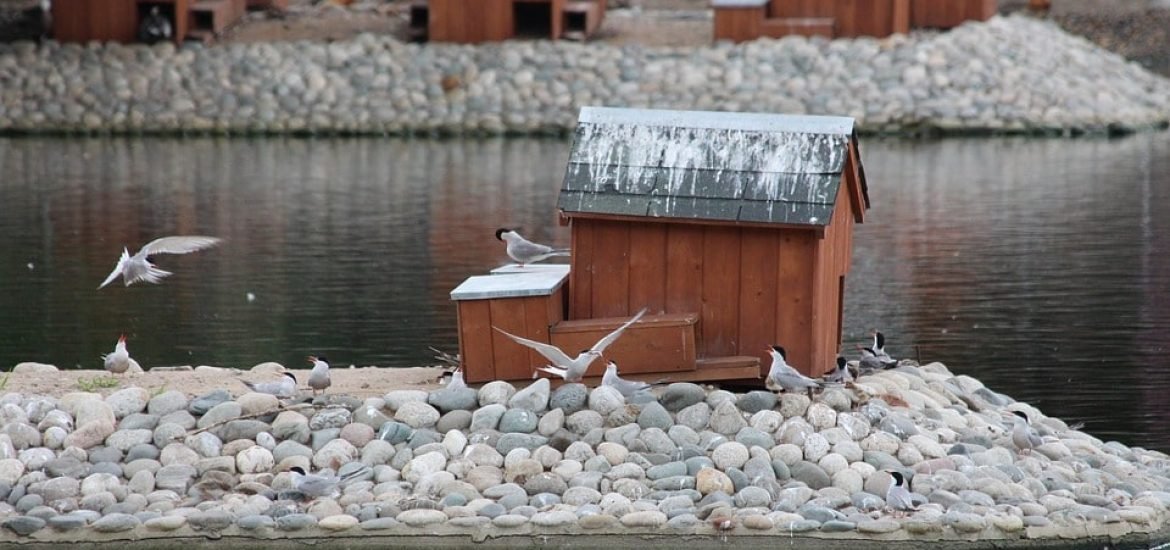
Caspian terns learn migratory routes from the Baltic Sea to Africa from their fathers, according to a study published in Nature Communications. Researchers used GPS to track entire families during their migrations.
Bird migration has long fascinated researchers. How do these animals find their way without getting lost? How is this knowledge passed from generation to generation? Now a team of researchers from Sweden, Finland, and the UK used GPS to track entire families to find out.
“We wanted to get a better idea of how the migratory skills of birds are passed from one generation to another in a species where individuals normally migrate together,” says lead author Patrik Byholm of the University of Helsinki.
Birds migrate as part of large groups, but little is known about how much these birds “talk” to each other during their travels. Using the Caspian tern — a fish-eating bird with a bright red large bill — the team unveiled that males carry the responsibility to teach their young about migrations. Typically, this role falls to the biological father, but in some cases, foster males may step in to complete the journey.
“This is very fascinating behaviour, which we really did not expect to find when setting up our study,” Byholm says.
GPS results showed that young animals always stayed close to their father, suggesting that — for Caspian terns, at least — this family connection is crucial for the young bird to learn the migratory paths. Then, on their first solo travel back to breeding grounds, young terns follow the exact same route as their fathers. It’s curious that the males take on this task rather than the females, and researchers don’t know why yet.
“This indicates that in Caspian terns, migration knowledge is inherited through culture from one generation to another. This has consequences on the decisions individuals make years after they first migrated with their father,” comments co-author Susanne Åkesson from Lund University, Sweden.
For the researchers, this work is more than just learning how Caspian terns learn migration routes. These findings are also important to understand if migratory birds can cope with global climate change and the loss of habitat. Their future depends on how effectively fathers pass their knowledge to their offspring regarding successful migratory routes and safe stopover locations with plenty of food available.
Byholm, P., Beal, M., Isaksson, N., Lötberg, U. & Åkesson, S. 2022: Paternal transmission of migration knowledge in a long-distance bird migrant. Nature Communications. https://doi.org/10.1038/s41467-022-29300-w